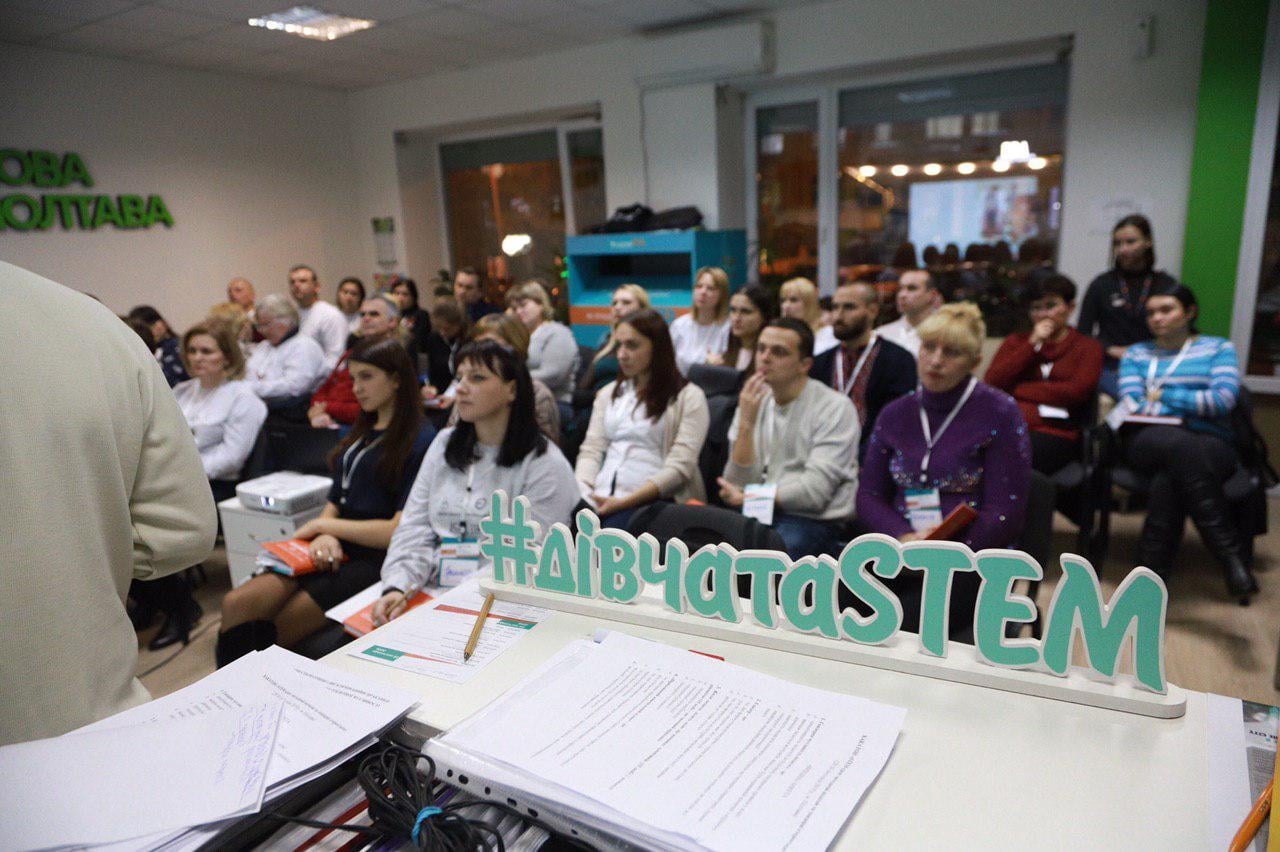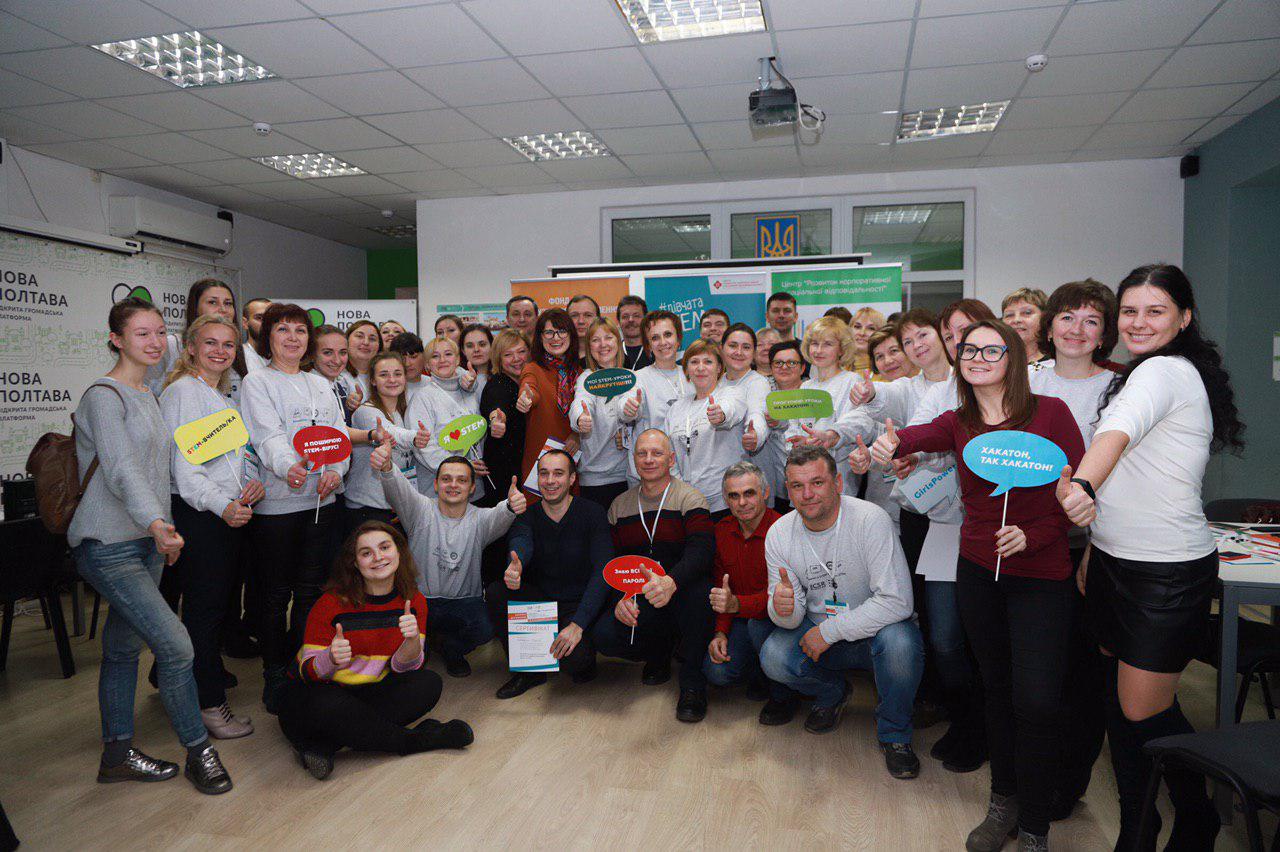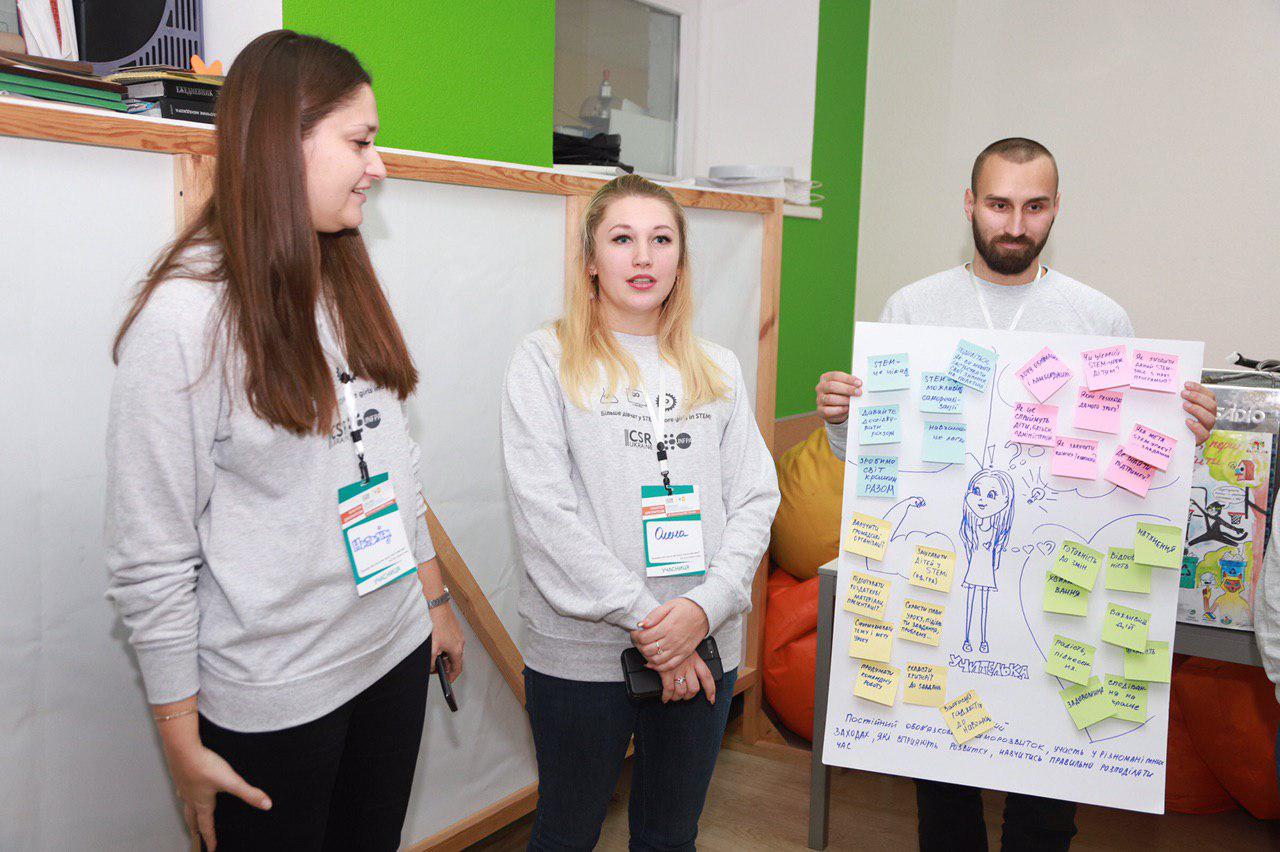On November 28-30, Poltava hosted a regional Hackathon for the teaching community: “STEM lesson: methodological approaches and gender stereotypes”. Teachers of mathematics, physics, astronomy, biology, chemistry, technology, robotics and elementary school educators have developed 6 gender-sensitive projects to interest students in STEM professions. Organizers: CSR Ukraine, CSR Development Center expert organization, United Nations Population Fund (UNFPA). Partner: Institute of Education Content Modernization within the Ministry of Education and Science of Ukraine and Mironivsky Hliboproduct company.
For the first time in the history of the Hackathons, more than 200 applications were submitted by the teaching community from 4 regions of Ukraine: Poltava, Sumy, Cherkasy and Chernihiv regions. The organizers selected 45 participants who, for three busy days, were acquainted with gender sensitivity in education and worked on a common goal: to develop projects and techniques that will help test STEM lessons for gender stereotypes and contribute to finding innovative solutions for students' interest in choosing STEM professions.

Maryna Saprykina, Head of CSR Development Center and initiator of the STEM Girls project said: “Hackathons are focused on a very important topic: combating gender stereotypes in schools. According to studies, it is teachers and parents who influence girls' interest in STEM professions, and there are only 23% of girls involved in science and technology. During this Hackathon, we together with experts will give teachers all the knowledge and tools they can use in class".
Anastasiia Shcherbakova, the United Nations Population Fund (UNFPA) Program Assistant, speaks about the importance of Hackathons for teachers of STEM disciplines: “Our goal is to create a world where every young person can fulfill her/his potential. To this end, it is very important to build attitudes towards professions without restrictive gender stereotypes. This Hackathon will help the teaching community raise girls' awareness about technical fields and create projects involving more girls in Ukraine”.

During the first day of Hackathon, participants were split into teams, talked about the importance of STEM, educational STEM trends in Ukraine and the world, studied project management, learned about the term “gender-sensitive approach” and methods of its implementation in schools.
According to gender expert Oleg Marushchenko, PhD in Sociology, Member of the Working Group on Gender Equality and Anti-Discrimination in Education within the Ministry of Education and Science of Ukraine, gender sensitivity means the ability to detect, perceive, understand and respond to gender stereotypes, gender discrimination, to act in accordance with the principles of gender equality. “Today, it is widely perceived that mathematics or technology is not for girls. Such prejudices about girls' ability are detrimental to them and to society as a whole. Women can be inventors, scientists and IT professionals. And for this, it is very important that the teachers themselves are gender sensitive, use feminitives and avoid double standards for female and male students”, the expert says.
The next two days of Hackathon were devoted to generating ideas for the development of gender sensitive projects using a design thinking session. It is a creative way of thinking, focused on applying a people-centered approach to developing innovative solutions. During the session, the participants identified the existing problems in schools, namely insufficient awareness of the teaching community about STEM education and stereotypes manifested in teaching, disinterest in STEM subjects, lack of a clear understanding of the importance of gender-sensitive approaches and unwillingness of school authorities to use new technologies in class. Furthermore, teachers identified target audiences, generated solutions, and created projects to address specific issues.

During the mentoring sessions and checkpoints, the teaching community received important recommendations to improve the proposed projects. As a result of the knowledge gained and the help of mentors, the teachers presented their work. According to the jury, the first place was taken by a team called Joker with the project STEM Feedback. Its goal is to improve STEM lessons using feedback from 14 to 16-year-old male and female pupils. The second place was taken by a team called Mixes with a challenge project under the name Inspiring Women STEM (#inspiring_women_STEM), which will help inform girls aged 13-14 years about gender inequality in education and science and, through motivational stories, will engage girls in STEM. The third place went to the team #Equal with the ADVENT Calendar project Gadgets in Your Life. The purpose is to change the vector of gadget usage to suit the interests of children, namely to launch an online calendar for pupils, both girls and boys, with interesting STEM tasks for every day.
“After the first day of Hackathon, I realized how many mistakes I made not only at school but also at home. I came to the conclusion that the topic of gender equality is acute and important. From now on, I even started to address my pupils in a different way. After the Hackathon, my main task is to convey to teachers everything I heard here and change education”, said Olena Glukhovets, a teacher of physics at Poltava Gymnasium No. 32.
After the end of Hackathon, the teaching community will work on implementing the developed projects in their schools.


